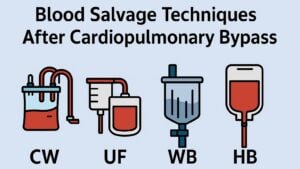
Predictors and Economic Impact of Red Blood Cell Transfusion in Cardiac Surgery: A Simulated Cost Reduction Model for Preoperative Anemia Management
This retrospective cohort study of 661 elective cardiac surgery patients identified preoperative anemia as the strongest independent predictor of red blood cell (RBC) transfusion (OR 3.67). Transfusion was associated with longer hospital stay, higher infection rates, prolonged ventilation, and a median cost increase of €2264 per patient. A simulation model estimated that eliminating preoperative anemia could prevent 47 transfusions and save €106 429 over 13 months.









